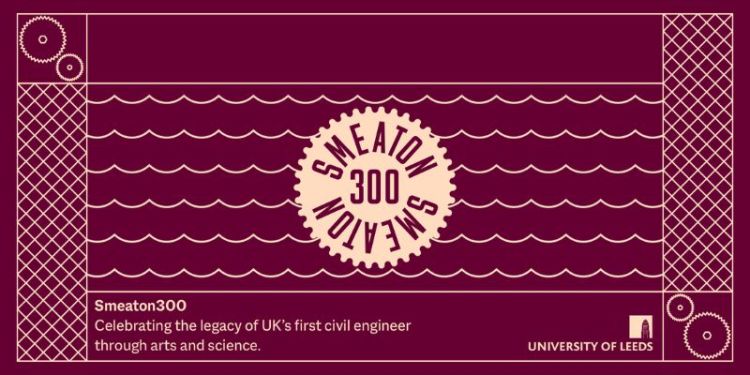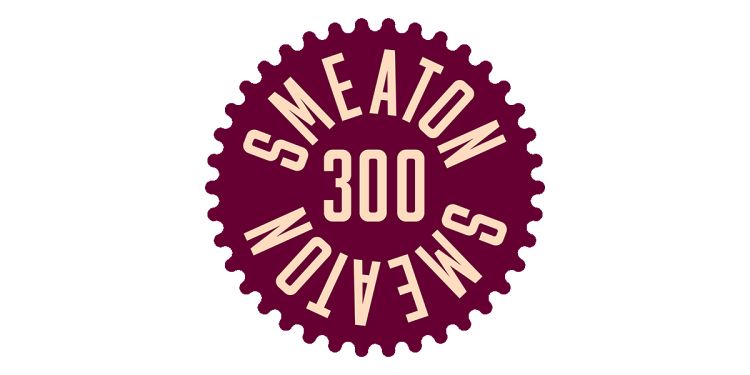Smeaton300: Civil engineer’s legacy inspires creative programme

The University is celebrating the 300th anniversary of civil engineer John Smeaton’s birth with events led by arts organisation Foxglove, the Cultural Institute, and the School of Civil Engineering.
History tells us that John Smeaton (1724-1792) was an unsung 18th century engineering superhero. His achievements include dramatically halting London Bridge from falling down and designing the iconic Eddystone Lighthouse from stone. More recently, NASA’s History of Flight references his experiments in wind power, known as the Smeaton Coefficient.
Smeaton coined the phrase ‘civil engineering’, establishing a new profession in the UK that utilised engineering to benefit society. He also believed in sharing knowledge, opting to never patent his work.
The University begins its official partnership with Smeaton300, a creative programme led by arts organisation Foxglove, in 2024. The programme will bring together arts and engineering to celebrate Smeaton’s legacy with a series of curated events on campus and beyond. Sign up to the Cultural Institute newsletter to receive all the latest updates.
The packed programme at the University will include an exhibition by Leeds-based Iranian artist Mohammad Barrangi, a stage@leeds summer theatre project inspired by Smeaton, Shakespeare’s the Tempest and the global climate crisis, and the School of Music’s first-ever ensemble-in-residence.
Wieke Eringa, Director of the Cultural Institute, said: “If you bring research, researchers and artists together something really magic can happen and we think Smeaton 300 has this magic: a sneak peek into a different perspective, a grasp of something unusual; a moment of beauty or wonder inspired by new insight and questions.
“Smeaton’s ideas and values were so ahead of their time that they are critical today and this programme is a unique chance to dip your toes in, or do a deep dive, and see how new generations of artists and researchers respond in today’s world.”
Professor Carlo Prato, Head of the School of Civil Engineering, said: “Our School strives to tackle key societal and technical challenges with a collaborative approach, recognising that it is key to productive and sustainable solutions to these global challenges. This reflects the current relevance of John Smeaton’s ethos of engineering for the public good.
“We are very excited to be working with Foxglove and the Cultural Institute to share Smeaton’s legacy among staff, students and the local community, and we hope the programme inspires new collaborations and ideas towards projects that are sustainable, resilient and inclusive by design.”

The Smeaton300 Programme
The first chance to get involved with Smeaton300 at the University is the inaugural Be Curious on Tour on 17 February at Leeds Industrial Museum. This free event welcomes families and young people to a lively and interactive day where they can meet researchers, delve into the world of Smeaton, and explore the new 'Engineery' exhibition, which celebrates engineering in all its forms.
The programme is still expanding and dates are yet to be finalised, but you can stay up-to-date by signing up to the Cultural Institute newsletter, or visiting the Smeaton300 website.
The Smeaton300 programme includes:
- A major new commission by Leeds-based artist Mohammad Barrangi, ‘One Night, One Dream, Life in the Lighthouse’ in The Stanley & Audrey Burton Gallery exploring notions of home, childhood and migration;
- A two-week summer theatre project at stage@leeds for young people inspired by Smeaton300, Shakespeare’s the Tempest, and the global climate crisis, premiering in stage@leeds’ new outdoor venue, ‘The Green Space’;
- A commission for the first-ever ensemble-in-residence at the University's School of Music;
- Outreach events for families by the Public Engagement team in school holidays at Leeds Industrial Museum and branch libraries (Be Curious On Tour);
- A series of Concerts+ commissions of exciting musical interventions by post-graduate students;
- Performances of work by staff and students responding to the sounds of the stars captured by the mobile observatory, the Moon Palace;
- Public-facing events by Music and Management students;
- An artist commission for Light Night 2024; and
- A sonic art installation drawing inspiration from the sounds of the woods.
Professor Ben Walmsley, Dean of Cultural Engagement, said: “This ambitious programme exemplifies how arts and culture can bring together researchers, artists, staff, students and audiences from across and beyond the University of Leeds to create meaningful and memorable events. It highlights the unique role that our Cultural Institute plays as a catalyst for interdisciplinary research and artistic experimentation.”
Leeds Creative Labs
As part of the Cultural Institute’s Leeds Creative Labs programme, artists will be paired with researchers from the School of Civil Engineering to spend time together and explore the legacy of Smeaton without the pressure of a final output. Previous collaborations have paired hip-hop dancers with economists, ballet choreographers with biochemical engineers, and visual artists with astrophysicists. Find out more about Leeds Creative Labs at the Cultural Institute website.
About Foxglove
Foxglove is run by Jane Earnshaw and Abby Dix-Mason. They have been creating, commissioning and producing arts projects for over 20 years. Between them, they have collaborated with artists and communities to produce work in parks, shopping centres, universities, swimming pools, museums, public spaces, bridges, castles, festivals, canals, playgrounds, libraries, schools, train stations and traditional arts venues.
Abby-Dix Mason said: “Having just completed a fantastic year of Smeaton300 events with Leeds 2023 Year of Culture, we are delighted to begin 2024 with our University of Leeds Smeaton300 programme.
“Working in partnership with the Cultural Institute and the School of Civil Engineering is a fantastic opportunity to explore our Smeaton300 themes across a range of disciplines and encourage audiences to consider engineering in new and creative ways. We're looking forward to inspiring artwork, lively discussion, and collaborative research that makes us think about the future of engineering in its many forms.”




